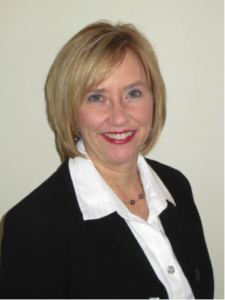“We had counted the cost and decided our children’s future was worth it.”
I am inspired, but even more so, profoundly challenged by the moral courage of the Reverend Dr. William J. Barber II. He leads in the tradition and carries on the legacy of Martin Luther King, Jr. on issues of racial and economic injustices.

Barber minces no words. He is brutally honest, which is why he’s so challenging. In his book, The Third Reconstruction: Moral Mondays, Fusion Politics, and the Rise of a New Justice Movement, he writes about his experience in 2010 resisting the attempted dismantling of one of the most thoroughly integrated public school systems in the South—that of Wake County, North Carolina— a system where data showed that diversity in schools works, a system that I visited three years ago with 10 other Rochester citizens.
He said the 2010 attempts at resegregation by privatizing schools were framed as a “push for excellence.” However, when he and his coalition “followed the money” of the privatization campaign, they learned these attempts “were continuing a fight that had been going on for half a century to deny a good education to poor people by clustering them in separate, subquality schools.” Barber built a diverse coalition of people – black, white, and brown, rich and poor, religious and secular, and more, to shift the public conversation, and ultimately succeed in resisting resegregation.
Of course, in 2017 Monroe County, resegregation is not the issue, for our school landscape is about as segregated by race and class as it can get. And it’s getting worse. Let me also be clear that I am not suggesting that local private or even charter schools have been set up by their founders to cluster poor people into subquality schools. I trust that those who are dedicating their time and resources to improving education have the best of intent, and we need a range of approaches to tackle the complexity of Rochester’s academic achievement gap.
Nevertheless, we’d be remiss not to pay attention to the experience of others, including our friends in Wake County, including Dr. Barber. One of the strategies of the Rochester Monroe Anti-Poverty Initiative (RMAPI) is creating “community schools,” which create partnerships with various health, social, and family support services to improve student outcomes. Great Schools for All fully supports RMAPI’s work in this regard. It provides immediate support for the immediate challenges of low-income students.
Recently, a community leader asked me why Great Schools for All continues to advocate for creating a network of socioeconomically diverse schools. Why isn’t creating community schools throughout Rochester enough to help these students in high-poverty schools? I replied, “Because it lets the rest of us (meaning suburban residents and districts) off the hook.” For me, it’s not about blame for what happened in the past and how we got here. It’s about all of us bearing responsibility for the future of public education for every child in our county, no matter their zip code. And Dr. Barber connects sole reliance on community schools and voucher programs with a self-perpetuating cycle of segregation and inequity.
Barber’s motivation is above all moral; he was even willing to be jailed to fight for what is right and just for poor and minority children, even if he didn’t know that they would succeed in stopping the move toward resegregation. “We had counted the cost and decided our children’s future was worth it.”
I ask myself if I would be willing to do the same for Rochester’s children.
